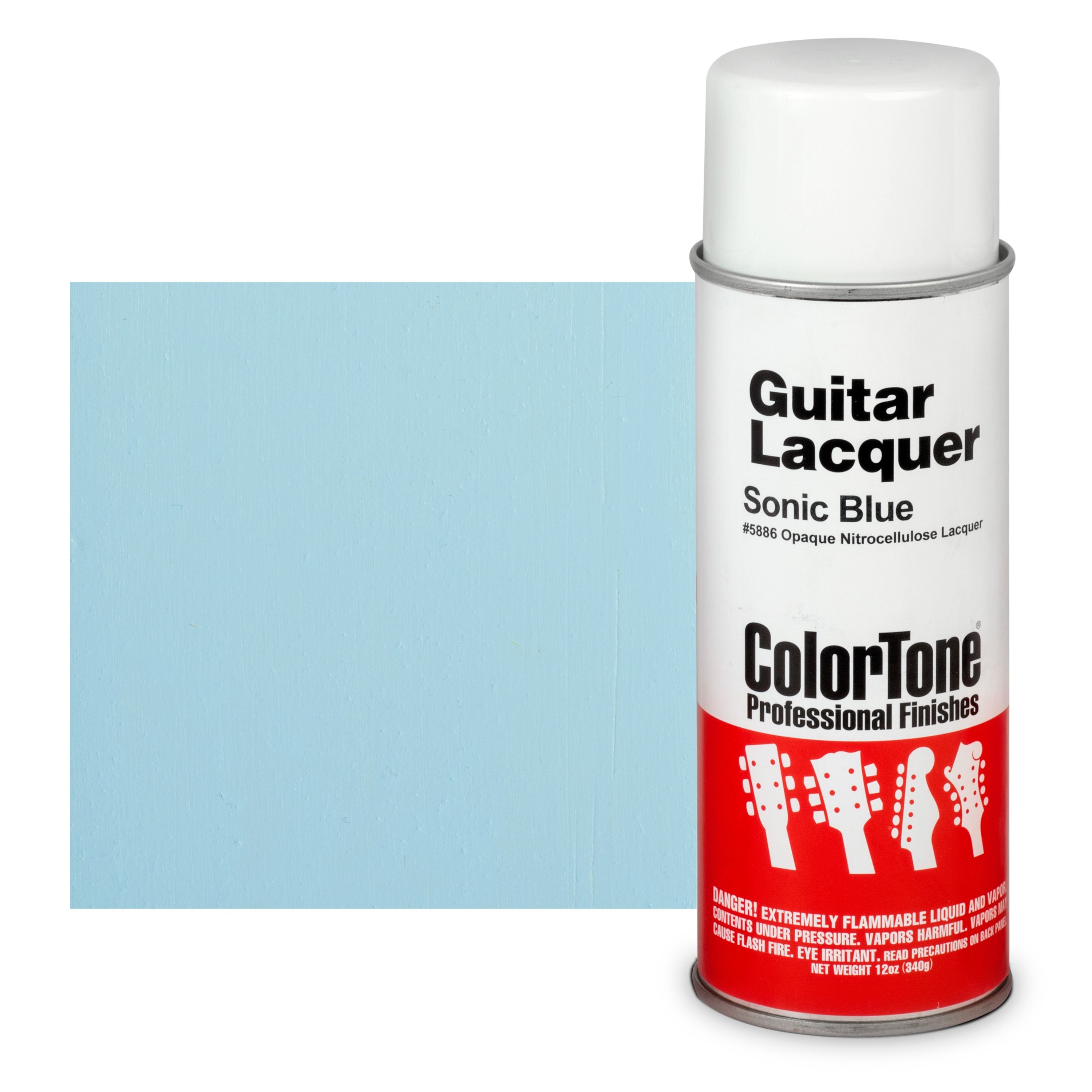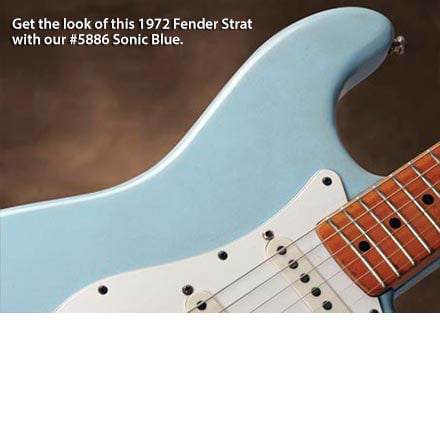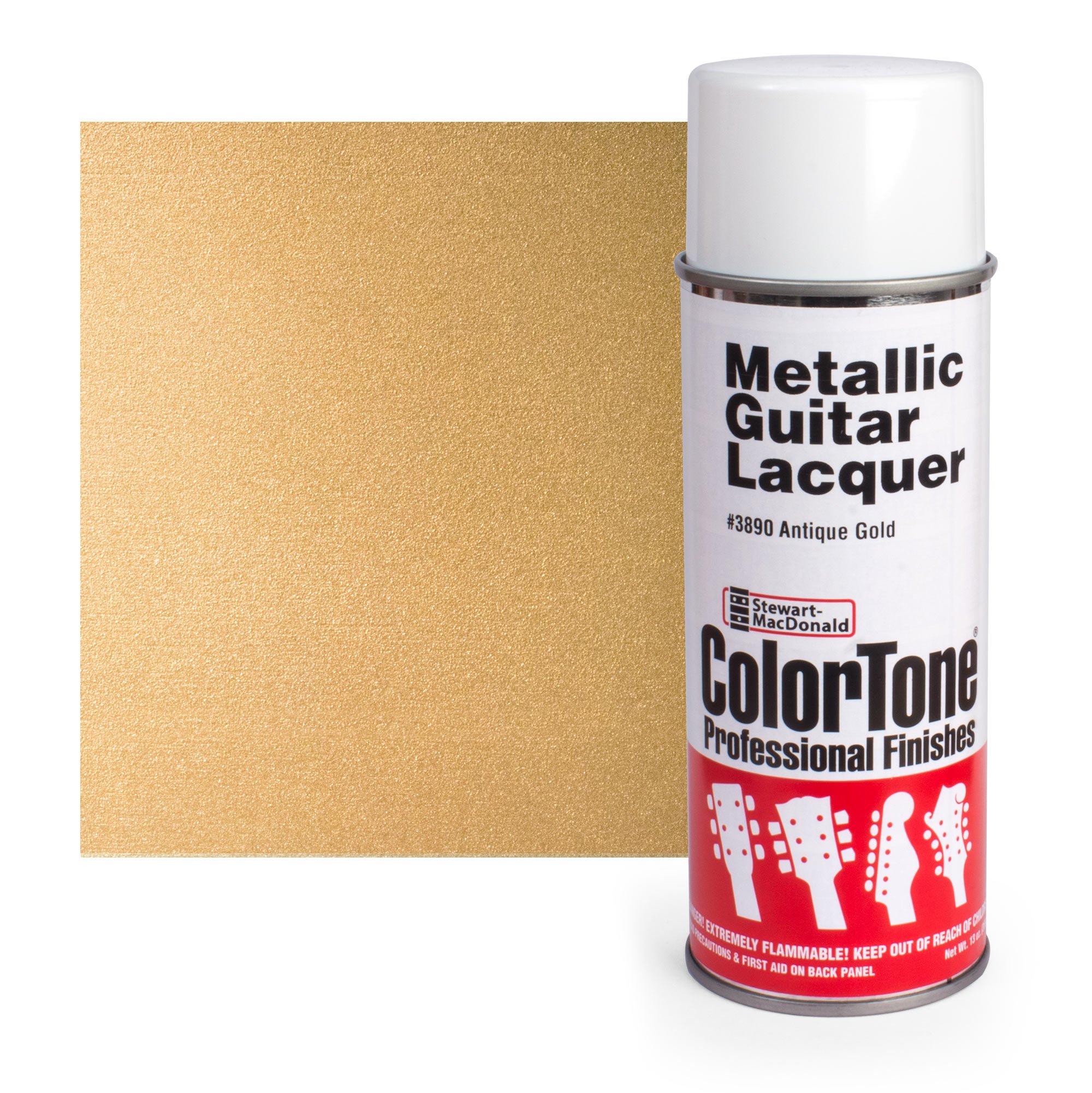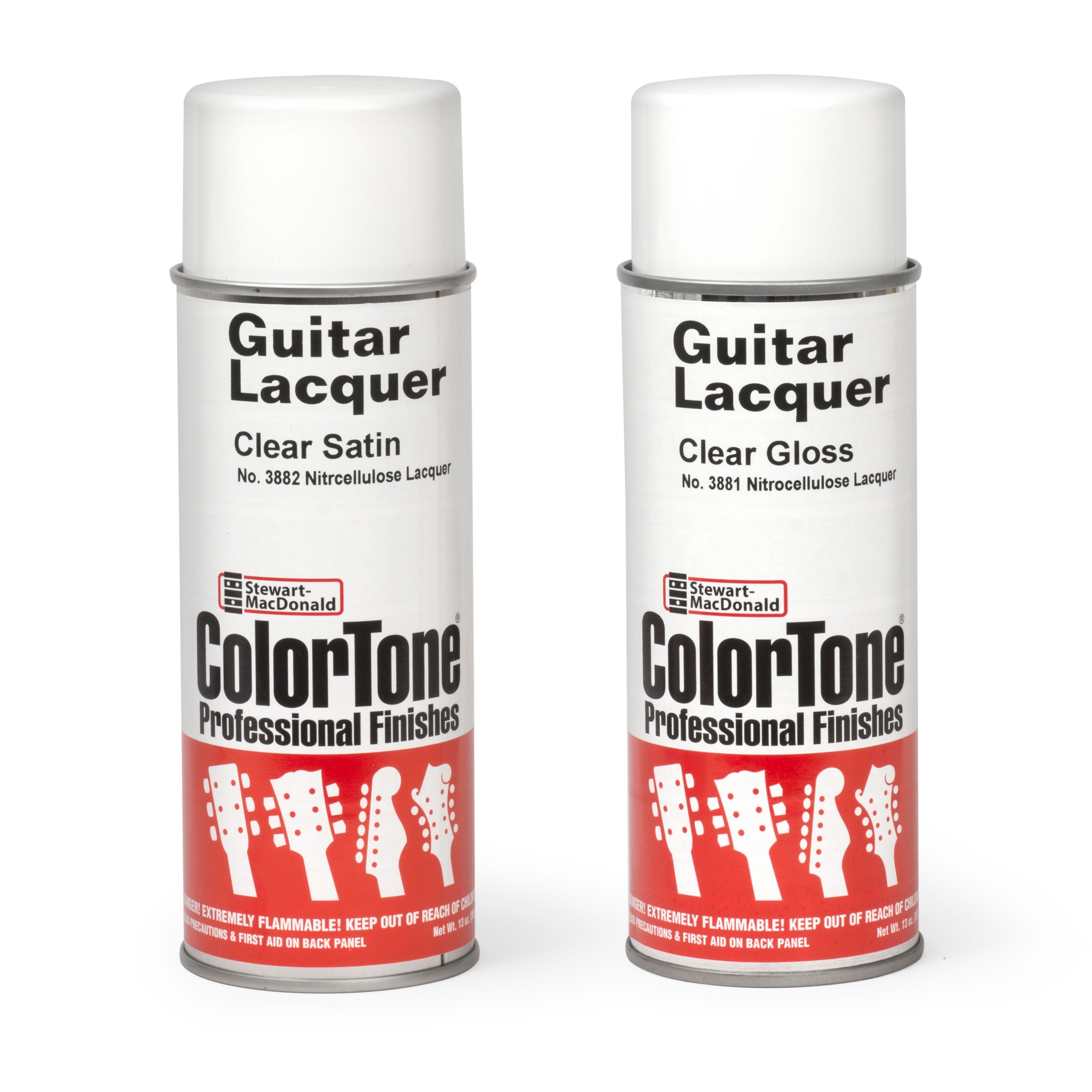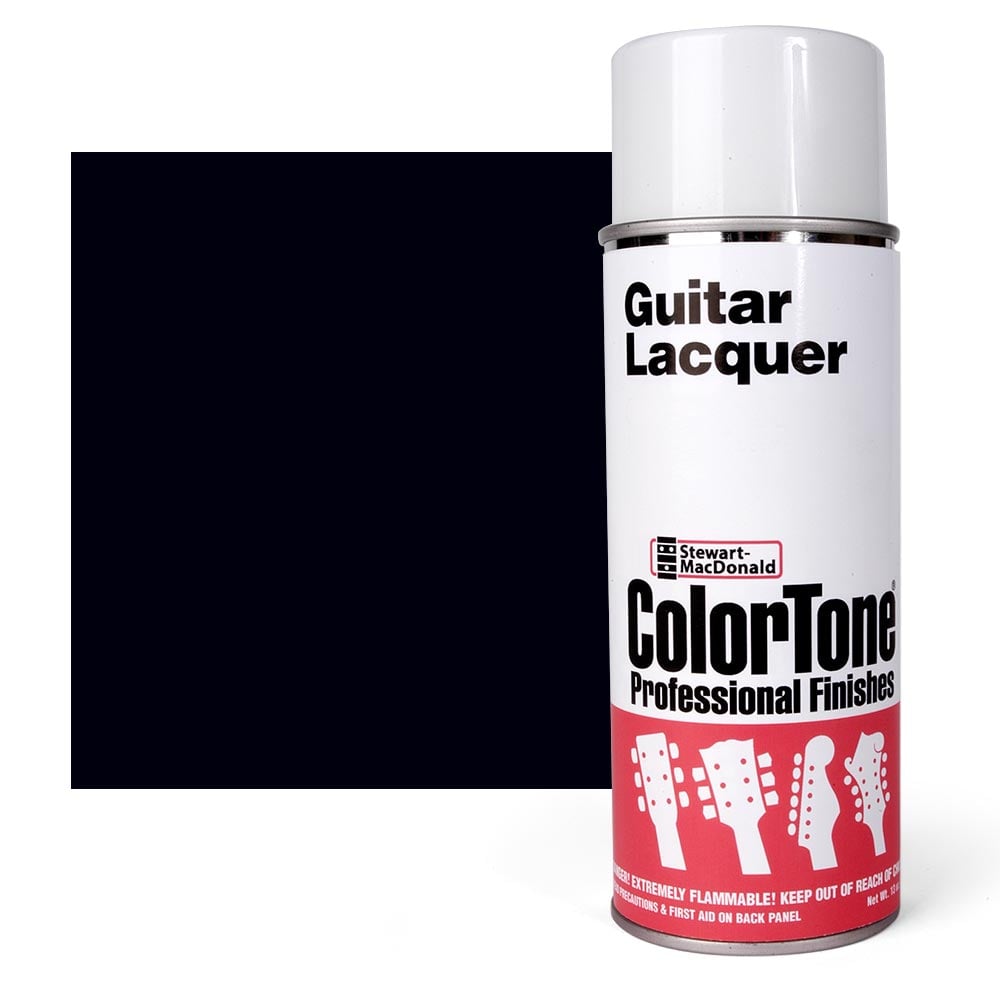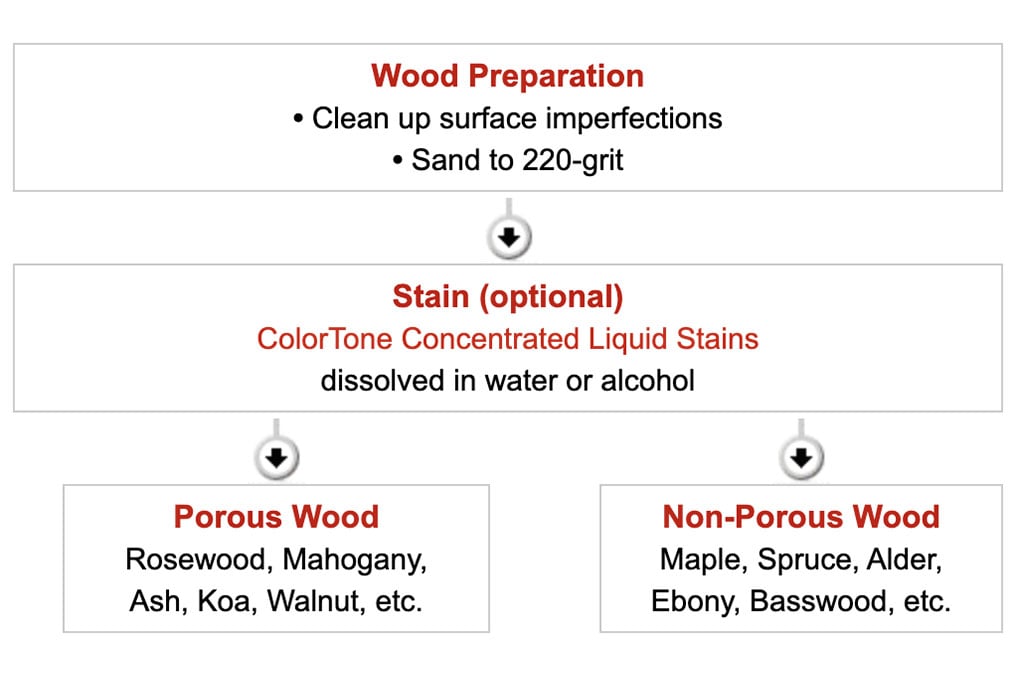ColorTone Aerosol Guitar Lacquer, Sonic Blue
FENDER CLASSIC COLOR | OPAQUE
Our opaque Sonic Blue was specifically color-matched to a 1960s Fender Stratocaster. This color was originally inspired by the 1956 Cadillacs and later featured in Chrysler's 1958 color chart.
A color highly sought after in the vintage Stratocaster and Telecaster models, as well as Mustangs, like the Kurt Cobain (Nirvana) Signature.
Important: On light colours like this one, the final colour of the guitar will look a little more yellowish if a few coats of varnish are applied as a finish. This is because varnish, whether nitro or polyurethane, yellows slightly over time.
Colors based on aged original guitars
Vintage finishes vary a lot. Two guitars sprayed together in 1960 look very different today, depending on where they've been all these years. And neither one looks like the day it left the factory. To get an authentic look for our finishes, we color-matched these original guitars.
ColorTone® Classic Colors Aerosols can be sprayed over smooth unfinished wood; over sanded grain filler; over sanding sealer, and over ColorTone Stains. We recommend Vinyl Sealer as the basecoat for Sonic Blue. Add topcoats of ColorTone Clear Aerosol Guitar Lacquer for a deep hard gloss.
A complete guitar typically requires 1 can of sealer, 1 can of color, and 4-6 cans of clear topcoat.
13-ounce aerosol cans.
Tips for aerosol finishing
- Spray multiple thin coats instead of one heavy coat.
- Use sanding sealer to seal the wood and build up the finish before applying your color coats or clear topcoats. Sanding sealer is heavy-bodied; one coat equals two coats of lacquer. One or two cans of sealer is usually enough for an entire guitar. After building up the sealer coats, level sand with 320-grit paper to create a thin, flat surface for your color or clear coats.
- Compared to professional spray guns, aerosols create a slightly rougher surface, so they require more sanding of the clear topcoats to achieve a level surface.
- Tints and transparent colors should not be sanded. Spray clear coats over tints to build a topcoat which can be sanded for a final, level surface.
- Choose low humidity days for spraying. Dan Erlewine often recommends spraying outdoors on a clear dry day.
Our ColorTone Aerosol Finishing Kit is great for the first-time finisher. It includes sealer, gloss lacquer, polishing compounds and our Guitar Finishing Step-by-Step book.
Tip: Use warm lacquer for better results
| Pro shops spray heated lacquer because cold lacquer spatters, requiring extra sanding. You should warm up your aerosol lacquer too, simply soak the cans in a sink of warm tap water. See our video with even more tips on how to spray a professional finish at home. |
